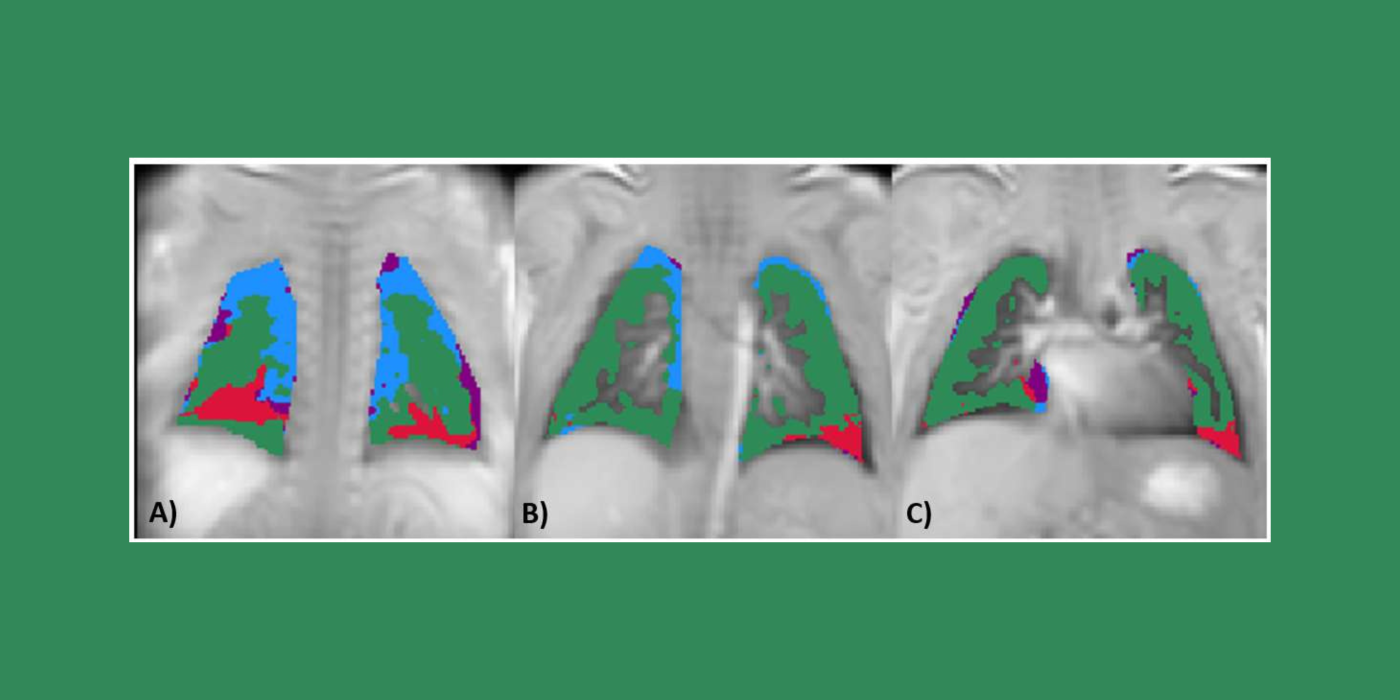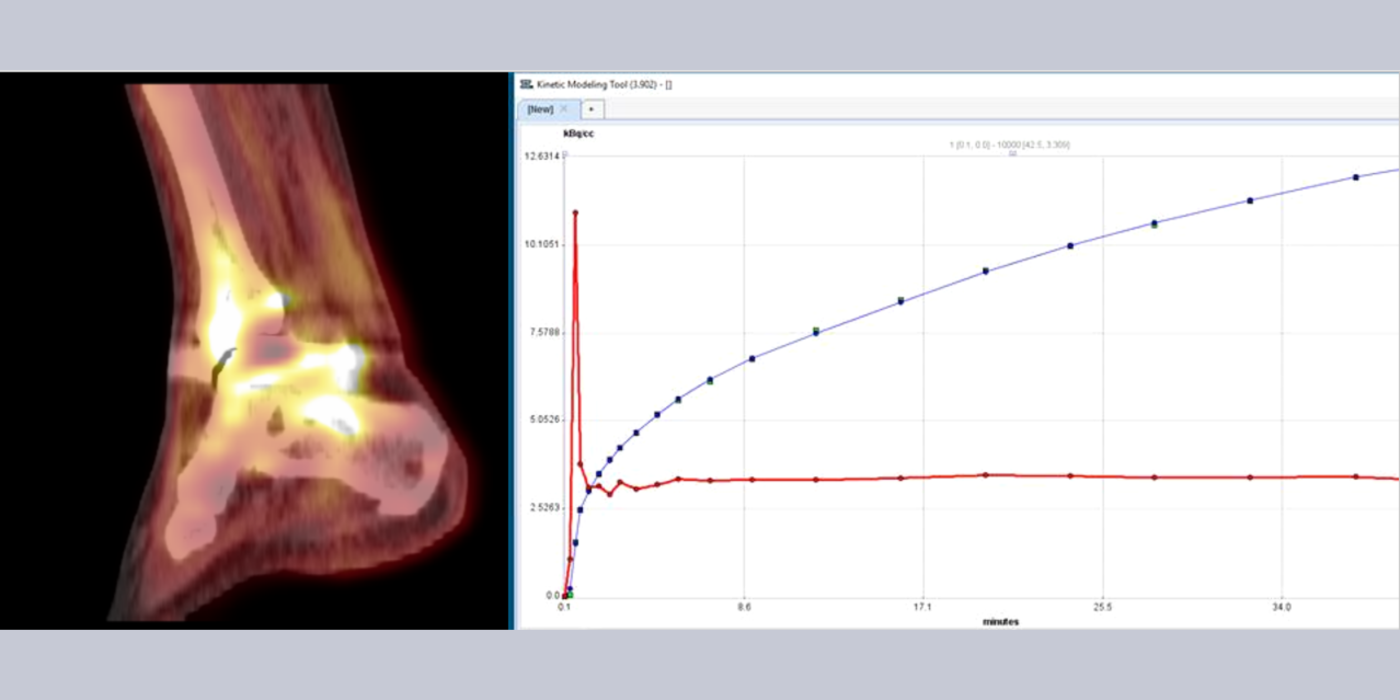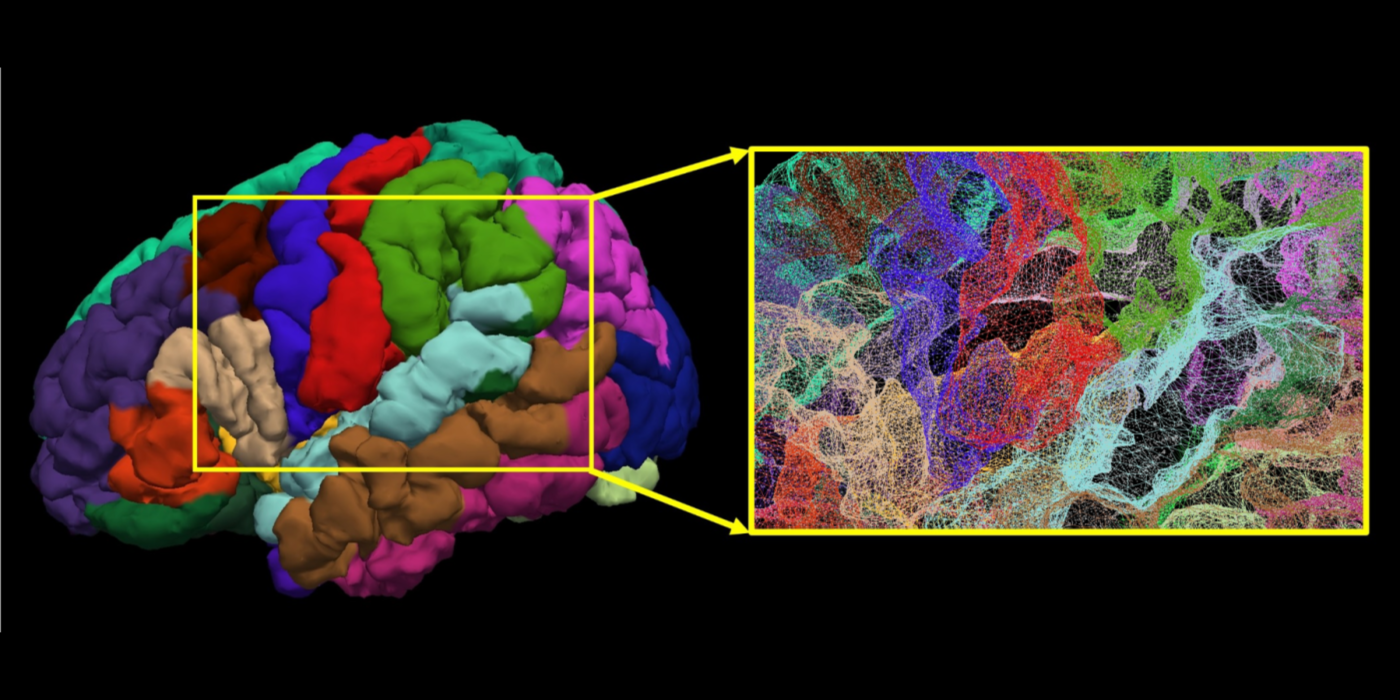
Phase-Resolved Functional Lung (PREFUL) MRI of Ventilation and Perfusion in Premature Infants
A PREFUL MRI map is displayed from an infant with Grade 2 BPD. A 19% total ventilation defect percentage (VDP%) and a 13.3% total perfusion defect percentage (QDP%) averaged across three slices.

Measuring BBF and osteoblastic turnover via magnetic resonance imaging and PET
Uptake of positron emission tomography (PET) tracer F-sodium fluoride (18F-NaF) three months after total ankle replacement. Pharmacokinetic modeling of tracer uptake confirmed bone blood flow (BBF) and osteoblastic turnover in bone under implant.

Multiparametric MRI of CLN2 (a Batten disease)
Freesurfer analysis of parcellated pial surfaces in the brain of a subject with ceroid lupofuscinosis Type 2 (CLN2), a pediatric neurodegenerative disease caused by a defect in the CLN2 gene. (MRI=magnetic resonance imaging)


